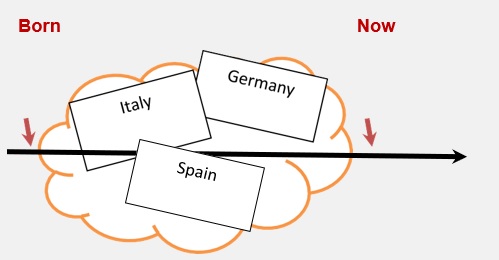CELTA Assignment Help
Hire CELTA Assignment Help Professionals to Boost the Grades
Language Related Task
Aim of the assignment
This assignment requires you to research and reflect on aspects of language. The types of target language considered include grammar and vocabulary. You will be asked to analyse meaning, form and pronunciation as you need to do when planning lessons. Please complete both Section one and Section two.
How to do the CELTA assignment From Top Linguistics Assignment Help Experts
Part A & B: For each of the grammatical structures and functional language expressions numbered from 1 to 4 in italics you need to:
- analyse the meaning of the structure as used in the given context. Give a clear definition of what it means / the situation it normally Look at the learner level given and grade your description accordingly.
- show an effective way(s) of checking understanding. Write concept-checking questions (with answers) and/or time lines, to show how you would check learners’ understanding of the
- analyse the form as you would on the board highlighting any aspects of phonology which would require attention e. sentence stress, intonation, transcription of any difficult sounds, features of connected speech, as you would on the board.
- anticipate any problems students might have with meaning, form and pronunciation at the given
Part C: For each of the vocabulary items from 4 to 6 analyse the word or phrase in italics in the following ways:
- Briefly describe the meaning of the word or Look at the learner level given and grade your description accordingly.
- Briefly describe a context or present a short dialogue which would contextualise the most common use of the item and which would illustrate this concept for the Explain how you will use this context to convey the meaning.
- Show how you would check understanding g. concept questions, clines, synonyms etc.
- Show the written record that you would put on the board for the students to copy Discuss the form and any phonological features.
- Comment on any anticipated difficulties with meaning, form and
Part A: Grammar
Example of Get CELTA Assignment Help With The Experts
I’ve been to Spain, Italy and Germany. (Elementary)
I really like my job. It’s very exciting and I travel a lot. For example, I’ve been to Spain, Italy and Germany.
Meaning
This is the present perfect simple used to describe actions / experiences at an unspecified time in the past.
Checking understanding
include: CCQs with answers, timelines if applicable

CCQs:
- Did I go to Italy, Spain and Germany? (Yes)
- Do we know when? (No)
- Was it in the past?
- Is it important to know when? (No)
Form
Include: The marker sentence with the form rule written above. Ensure: That the rule would apply to all sentences that contain this target language.
I’ve been to Spain, Italy and Germany.
Subject + have (‘ve) / has (‘s) + past participle + rest of sentence.
Pronunciation
Write the marker sentence below and indicate relevant aspects of phonology. Write the TL in IPA and indicate linked sounds, sentences stress and schwas.
I’ve been to Spain, Italy and Germany.
/aɪvbɪntə/ /jən/
/aɪv.bɪn.təˈspeɪnˈɪt(ə)lɪjənˈʤɜːmənɪ/
- Primary stress on the country
- Potential weakening of the ‘to’ to a /tə/.
- Possible weakening of ‘been’ to / bɪn/.
- Possible intrusion of /j/ between ‘Italy and…’
Anticipated Problems Why Urgenthomework Is Best CELTA Assignment Help Services?
- Meaning
Problem #1: Students may not understand the difference between Present Perfect and Past Simple. They might think that the present perfect needs a specific time reference. Solution #1: Use CCQs 2 & 3 (above) to show that the time is not stated / necessary.
Problem #2: Ss may not understand the difference between “I’ve been to Spain” and “I’ve gone to Spain”.
Solution #2: I will provide a couple of examples and check meaning with CCQs for each
II. Form
Problem #1: May use past simple instead of past participle. i.e, ‘I’ve went to Spain…’ Solution #1: Elicit the right form and highlight it on the board followed by controlled practice.
Problem #2: May omit the auxiliary i.e. ‘I been to Spain…’
Solution #2: Use finger-modelling to highlight the missing auxiliary. Use a substitution drill to keep the auxiliary constant.
Problem #3: May use ‘to be’ instead of ‘have’, i.e., ‘I’m been to Spain’.
Solution #3: Use finger-correction to highlight the error. Elicit the correct form and board it.
III. Pronunciation
Problem #1: Learners may produce /aɪf/ rather than /aɪv/ due to L1 interference. Solution #1: Elicit the correct model, highlight and drill the class.
Problem #2: Learners may put unnatural stress on the auxiliary leading to a slightly impolite model.
Solution #2: Use finger-correction to elicit the correct stress. Then drill.
Items for Analysis
Please analyse the following grammar items. Write your answers in the provided CELTA Assignment Help.
1. a) The plane leaves at 10am. (pre-intermediate)
Rose: Are you leaving on Saturday? Lynn: Yeah, the plane leaves at 10am. Rose: Have a safe trip!
Meaning: Present simple talking about planes time table A scheduled future event
Checking Understanding:
x x past x x x x present x x x x future x x
CCQ: 1. Is the plane going now ? (No)
- Is the plane leaving at 12 pm? (No) Not a CCQ
- Is this a repeated action ? (Yes)
- Is the plane leaving at 10am? (Yes) Not a CCQ
BThere needs to be something that highlights future and schedules.
Phonology and Form (written record on the board):
The plane leaves at 10 am.
Form: Subject+ verb (present simple 3rd person) + rest of the sentence
Phonology:
The plane leaves at 10 am. It ought to be a schwa for “at”
/ðə/ /liːvz æt/
/ðə pleɪn liːvz æt 10 æm/
- Primary stress on the subject and
- Potential weakening of the “The” /ðə/ before plane
- Possible weakening of ‘leaves at’ to /liː vz æt/ No. I think it;s a schwa in “at”
Anticipated problems and solutions:
- Meaning
Problem: Student may not understand that the action is in repetition.
I don’t think this is the meaning. This isn’t a commentary on the airline’s scheduling but a comment about a future event.
B: agreed, future scheduled / timetabled event.
Solution: Use CCQ 2 and 3 (above ) to show when the action takes place
Part B: Functional Language
Example
“What do you recommend?” (Intermediate)
Derek: I fancy seeing a film tonight? What do you recommend?
Clive: You should watch Snatch!
Meaning of CELTA in CELTA Homework Help Services
This is a semi-fixed expression. We say this when we want to ask someone to suggest a film for us.
Checking understanding
Do I know what I want to watch? No
Do I think you have some good ideas? Yes Am I asking for your opinion? Yes
- & (iv) Phonology and Form (written record on the board) what + do/does/would + subject + recommend (infinitive) + ? This is a semi-fixed expression to ask for
“What do you recommend?”
/,wɒdjərekə’mend/
- Potential elision of the /t/
- Assimilation of /djə/ to a possible /ʤə/
- Weakened ‘you’ to /jə/
Anticipated problems
- Meaning
Problem: Ss might not get the future time reference here and think that it’s something currently being recommended.
Solution: I’ll ask relevant CCQs (see above).
II. Form
Problem: Ss may forget the auxiliary, producing “what you recommend?”
Solution: I will highlight the form on the board and provide relevant oral and written practice.
III. Pronunciation
Problem: Students may stress the auxiliary producing an unnatural and perhaps aggressive- sounding utterance.
Solution: Elicit the correct model (perhaps with a finger-modelling) and drill the full expression
3. Would you mind …ing? (pre-intermediate)
Jane: It’s really hot in here! Would you mind opening the window? John: Of course not!
Meaning:
We use the phrases would you mind + -ing to ask people politely to do things. Would you mind is more polite and more common than?
Checking Understanding:
- Is it a rude way of asking to do something? (No)
- Is it an order for you to open the window? (No)
- Am I polite in the questions? (Yes)
- Am I asking you to do something? (Yes)
Phonology and Form (written record on the board):
Would + subject (you) + mind + V ing + rest of the sentence.
Would you mind opening the window?
Intrusion of /j/ sound in would you as wəd jʊ
wəd jʊ maɪnd ˈəʊpnɪŋ ðə ˈwɪndəʊ?
Primary stress on Would, opening, and window. Potential weakening of the before window
Anticipated problems and solutions:
- Meaning
Problem: Students might get confused between the uses of would you mind as a polite request and polite permission.
Solution: CCQs 2 & 4
II. Form
Problem: Students might add past form after would you mind as it is also used for polite permission.
Would you mind if I opened the window?
Solution: I will write the forms on board and explain it to them by highlighting them.
Pronunciation
Problem: Students may have a problem in pronouncing intrusion in pronouncing, would you? I think it’s assimilation
Solution: Elicit the correct model with finger – modelling and drill the full expression
|
Part C: Vocabulary
Items for Analysis
Please analyse the following items appropriately for the level indicated. Write your answers in the provided CELTA Assignment Help.
Total word count: words (750 - 1000)
Do not include bibliography, instructions, appendices, headers or sub-headers. Empty CELTA Assignment Help =
1659 words.
Bibliography B: this will need resubmission too. Include sources you relied on to do this assignment (e.g. dictionaries, grammar reference books, etc).
(e.g. Thornbury, S (1999). How to teach grammar. Longman, UK)


